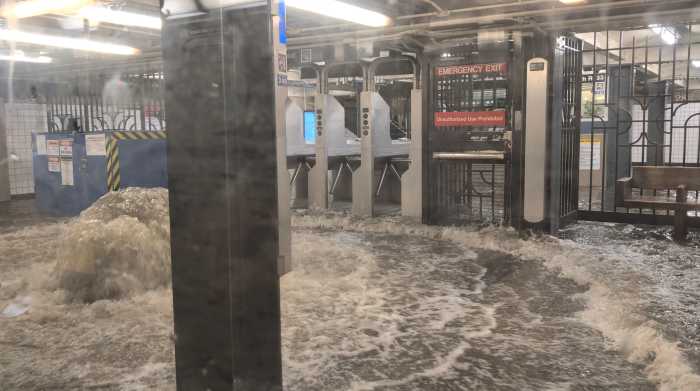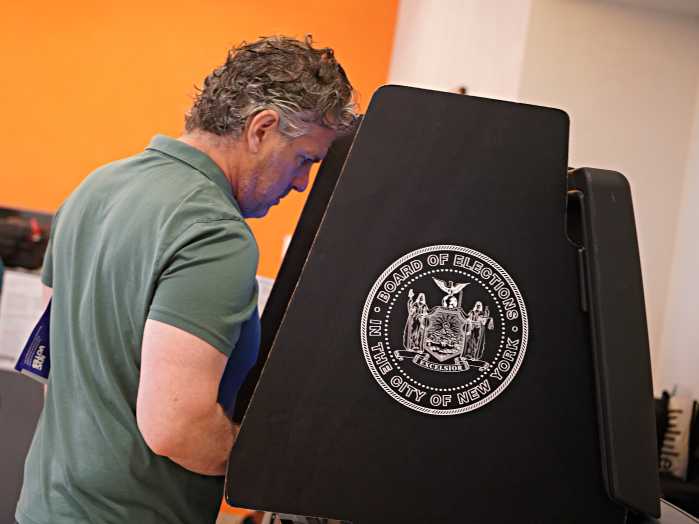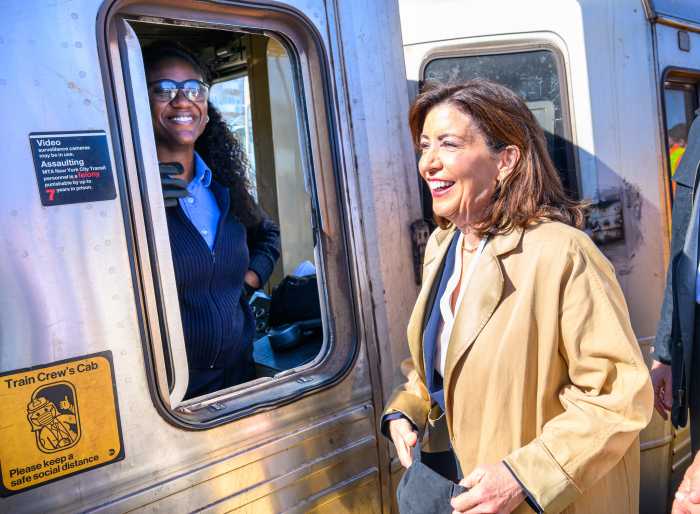
My memory returned with jagged edges, raw nerve endings, and a panic attack as I filled out the 2015 World Trade Center Health Registry survey this week.
I revisited the apocalyptic sights, sounds and smells rising from Ground Zero that rivaled — not surpassed — the graphic movie trailers for the release of “Mad Max Fury Road.”
The registry, the largest post-disaster public health registry in U.S. history, tracks the health of more than 71,000 people directly exposed to the World Trade Center disaster. I enrolled in the program in 2004 and completed the last health questionnaire in 2011. This year’s update recorded disturbing changes to my quality of life.
May 30, 2015, also marks the 13th anniversary of the end of the recovery and cleanup operations at the World Trade Center site. For many of the workers and volunteers, this date has life-altering significance. It connects their lives like an umbilical cord to the 9/11 toxic womb that gave birth to respiratory disorders, mental health issues, cancer and other ailments.
In 2001, I was a middle-age business executive living and working near Wall Street. With a faltering marriage and a start-up venture teetering on the brink of collapse as our development team was forced to cease operations and vacate Battery Park City, I volunteered in the rescue and recovery efforts.
On Sept. 28, 2001, I was selected with a team of five other volunteers at the Salvation Army headquarters in Greenwich Village to man a food-and-supply depot called Canteen 1. We were issued security badges and bright-red Salvation Army Disaster Services T-shirts and dispatched to the disaster site in mid-afternoon.
As we navigated through security checkpoints, an opaque dust cloud swallowed our van. Then things went terribly wrong.
I volunteered to find help and stepped outside. Immediately my eyes began to burn. The smells were awful and reminded me of brake pad dust mixed with melted plastic. The air was so thick and grainy — I could chew it.
I approached a tent where a medical professional was meticulously tagging items. He screamed, “This is a restricted area. Get the hell out of here.” I realized the items were body parts. In shock, I walked until I found a National guardsman. He guided me back to the van and directed us to our destination where we relieved the previous night’s crew.
The canteen reminded me of the food trucks that pull up to work and school locations. We took our positions. I served hot food in the form of Dinty Moore Stew while others handed out candy bars, salty snacks, water and respirators.
Throughout the night we breathed in the smoldering air and wiped hot embers from our eyes. We witnessed bravery. We witnessed heroism.
In the weeks that followed, I coughed the World Trade Center cough until my lungs screamed. I was diagnosed with asthma the following year. Then my health deteriorated severely in 2013.
I remember the meeting with my urologist to diagnose the cause of my urinary tract bleeding.
“Sir, how many packs of cigarettes do you smoke a day?”
“Doctor, I don’t smoke.”
“Do you work with chemicals?”
“No, I’m a white-collar computer executive. The only time that I recall ingesting large amounts of smoke was when I lived and worked in Lower Manhattan at the time of the 9/11 attack.”
“Maybe that’s your link,” the doctor replied.
I had surgery to remove a cancerous bladder tumor in June of 2013 and underwent six months of chemotherapy. I did some research and discovered that bladder cancer is one of more than 50 types of cancer listed in the James L. Zadroga 9/11 Health and Compensation Act that was signed into law by President Barack Obama in 2011. In February of 2014 the World Trade Center Health Program certified my cancer along with asthma and post-traumatic stress disorder as being linked to my exposure to the toxic air in Lower Manhattan. Ongoing studies funded by the federal government and the New York Fire Department indicate 9/11 responders and volunteers have a 20 percent higher chance of contracting cancer than the general population.
I’m proud of my decision to join the real heroes and the accidental heroes who came together to make a difference. While I signed up as a volunteer, I didn’t expect to have my health compromised. Fortunately, my health issues are treatable and there has been no reoccurrence of cancer. I am entitled to receive state-of-the art medical evaluations and treatment for my conditions through the World Trade Center Health Program.
I just completed the registry questionnaire. I wonder how many of the other 71,000 survey responders have experienced significant changes in their health since the last survey.
OK, time to hit the send button . . .































